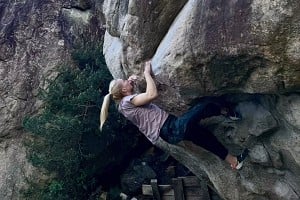
Where to begin with last night's final? The first medal event in Sport Climbing's debut Games demonstrated the unpredictability of the Combined scoring and that it's undeniably very much a case of 'it's not over 'til it's over' in this quirky format.
We posted a brief round-up of the action last night, but it seemed worth unpacking some of the results and sharing perspectives from being present on the ground here in Tokyo.
Colin Duffy's false start in Speed gave Alberto Ginés López (ESP) both a rest and free pass to the next round. It proved to be a pivotal moment for the rest of the final. Tomoa Narasaki's (JPN) slip in his run against Ginés López cost him the number 1 beside his name (and, ultimately, an overall win). With his best discipline - Lead - still to come, Ginés Lòpez was in an incredibly strong position.
Conversely, 17-year-old Duffy was immediately on the back foot and his mindset appeared flustered by his unfortunate mishap. Commenting after the round, Nathaniel Coleman told press: "Colin struggled after the false start in Speed. It's all about persevering and forgetting failure. But he is so young and talented. This is great experience for him and he'll get so much better."
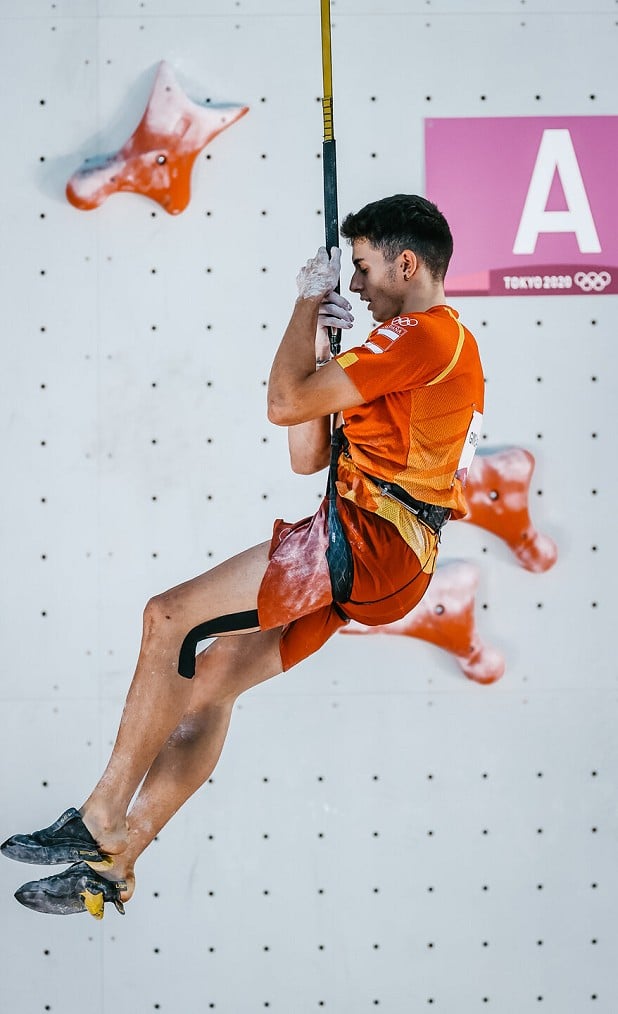
Adam Ondra (CZE) more than rose to the challenge in his nemesis discipline, setting a new PB twice and going sub-8 seconds for the first time twice, with times of 7.44 seconds and 7.03 seconds. Ondra looked happy and relaxed, and combined with his lucky pass to the quarter-finals due to Bassa Mawem's (FRA) biceps injury, everything seemed to be lining up relatively well for the top contender in Lead and Boulder.
Mickael Mawem's slip against Narasaki was another blunder which could have set the Frenchman - who led the qualification round - up nicely ahead of Boulder, the discipline in which he seemed on a whole other level altogether compared to his competitors on Tuesday.
Many commented online that Adam's leap to 4th place would be unfair, but the slips and false starts put the cat amongst the pigeons even without Bassa's absence. Narasaki could have benefitted by Bassa's absence, having the fastest Speed PB out of the line-up, but his slip doubled his score.
There are so many 'what ifs?' in Combined and myriad permutations of outcomes, with the finest of margins making huge shuffles in the ranking table due to the impact of the score multiplication. It's what makes the format both frustrating for athletes and fans, but also engaging and exciting.
Next, the Boulder round featured a mix of easy and difficult boulders with a range of styles. B1 was topped by all but Ginés López, exciting the crowd. B2 looked like it had Narasaki's name on it, but a heartbreaking last move involving a toe-catch finish threw him off as the clock ran down. Nathaniel Coleman gave a masterclass in technique and precision, immediately spotting the toe-catch that many others missed on his first attempt once he had caught the zone to achieve the sole Top. Duffy spotted it too, but lacked the height or precision to execute it. Ondra struggled on B2 – a veritable anti-style boulder for the Czech star. He failed to reach the Zone and fell behind the rest of the field.
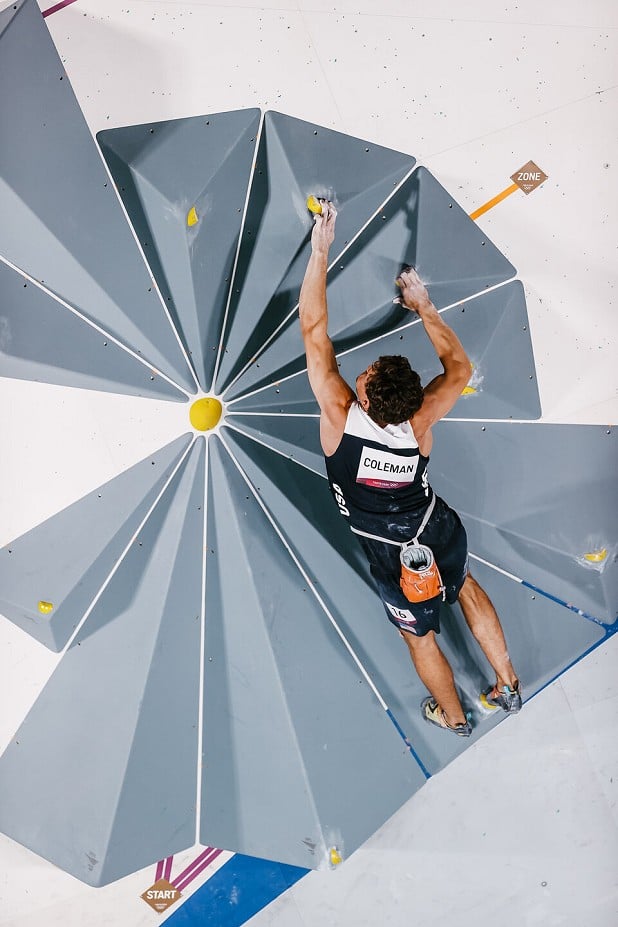
B3 was set in the form of a Japanese rising sun, or a piece of origami, or a Japanese fan (I've read a lot of suggestions) with heinous flat crimps littered on volumes. Would this more conventional boulder be the salvation climb that both Schubert and Ondra enjoyed in the crack boulder in qualification? Unfortunately the athletes misread the intended beta and each reached the Zone on their flash attempt. Chief Boulder setter Percy Bishton told us the intended beta: "Flip left hand on the pinch and go again with right hand. Maybe observation isn't helpful sometimes if they all decide on a whack sequence. But that's the routesetting game!" he said.
Coleman led the Boulder round, with Mawem leading Combined in the interim and Narasaki and Coleman close behind on the same number of points, but ranked due to countback.
There was all to play for in Lead, but nobody could have predicted the mental gymnastics and last-minute flipping of the scoreboard that ensued. Ginés López was in a solid 4th position - just 1 point behind the 3 leaders - with his strongest discipline to come. Our scoring prediction spreadsheet suggested that the competition was the Spaniard's to lose at this point. Ondra set a highpoint of 42+, pushing himself into medal contention with a provisional 1st place. Ginés López climbed in his tense-but-composed style to 38+, setting the bar high and looking certain for a medal of some colour. Nathaniel Coleman finished slightly lower, then Narasaki lower again. Mawem fell low and slid out of medal contention. 17-year-old Colin Duffy had the potential to take the win - and was highly capable of doing so - couldn't match Ondra's highpoint.

It all came down to the last climber: Jakob Schubert, a Lead and Combined World Champion with a reputation for coming back from poor rounds to take a win or a medal. If Schubert could pass Ginés López, but not Ondra, Ondra would win Lead and win the Combined by virtue of having 1x24 points. Coming 2nd would double his points and push him down to 6th. All eyes were on Schubert as he easily and quickly progressed up the route, looking relaxed and as though he was enjoying every move. With bated breath the crowd watched as he surpassed Ondra and climbed to the Top - a perfect finish for the Lead round and the event as a whole. Despite the no-cheering COVID rule, the crowd erupted.
Ginés López had won - but wait, what were the implications of a 1 score for Schubert?
Schubert looked to his coaches as he wondered himself where he was placed. "THIRD?" he gestured with three fingers, before exploding with joy. A bronze medal was the answer.
The 31-year-old - one of the greatest climbing competitors of all time, if not the greatest - had earned a medal after a rough first two rounds. Having been tipped to win the event, the pressure seemed to ease for Schubert as he entered Lead, his strong suit, and it ultimately paid off. He excels at pulling exceptional performances out of the bag when it matters most and doing what he needs to get himself into contention. Last night was a stunning demonstration of his talent in Lead and his nerve in high pressure situations. Championships and Games play to his mental fortitude.
Schubert told the press on his Bronze: "It was quite improbable, the fact that it depended on such a mega performance to win in Lead. There were so many elements, like Bassa not being there, etc., that affected the results."
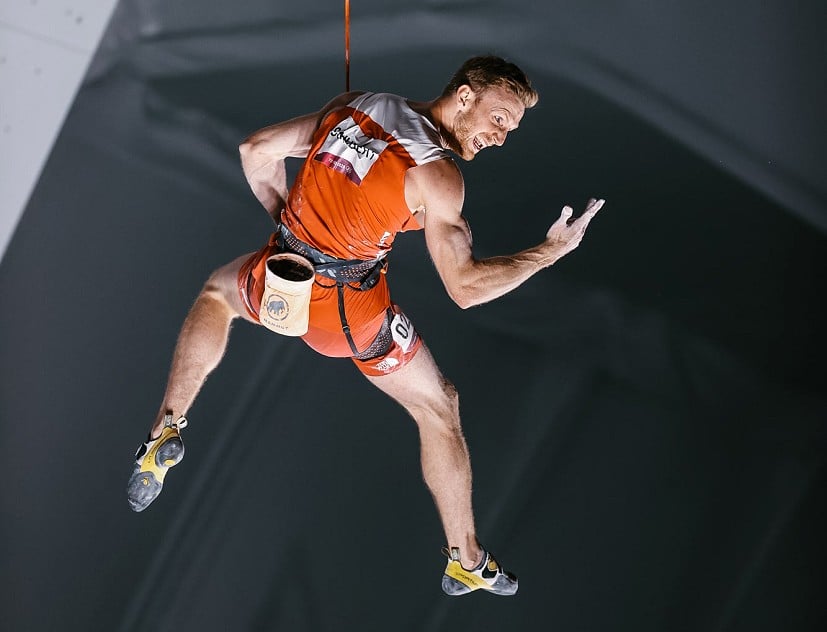
He's not done yet, though. He talked about Paris 2024. "Of course I can improve on this bronze. But at least I have a medal in my pocket already," he said.
Tomoa Narasaki didn't seem very present throughout the round. It was shame for the Japanese favourite to struggle to make a mark in front of a home crowd, but making the final was important for Narasaki, who commented after qualifiers that he felt pressure to represent the sport well to new audiences in Japan and on a global level.
Ondra commented on Schubert's performance afterwards: "Honestly, I was a little bit hoping that he would fall in the same place and we'd be down to time. Then it would be likely that I was faster. So seeing him topping out was disappointing, but honestly, he was a better climber on that route."



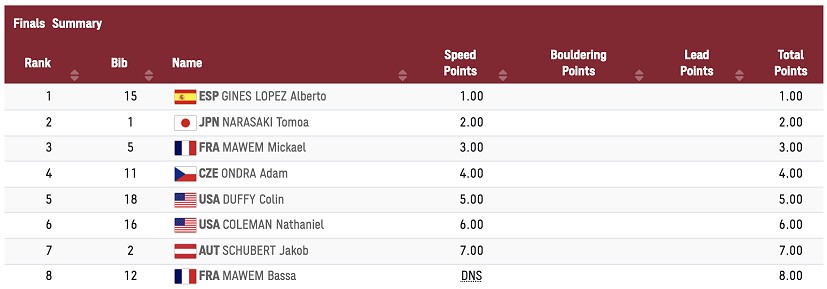

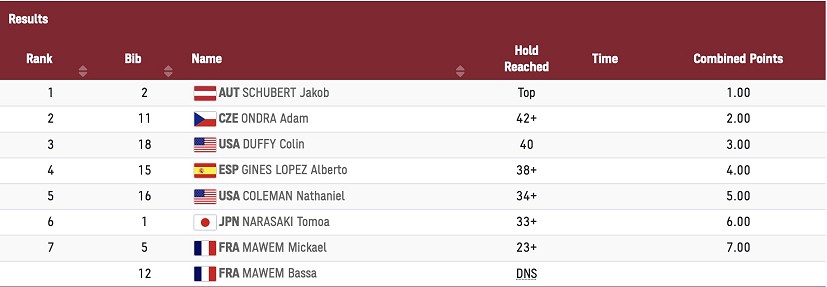
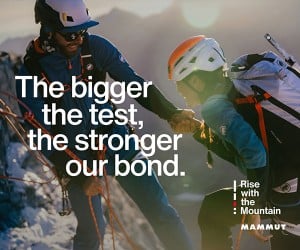
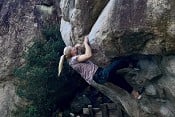






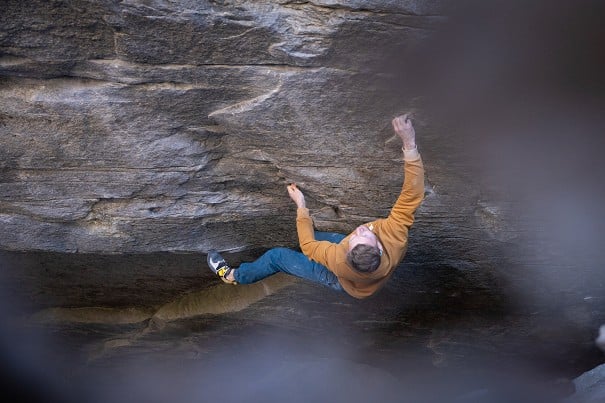
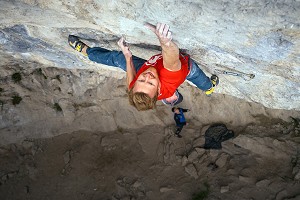
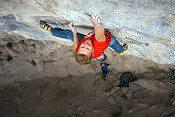
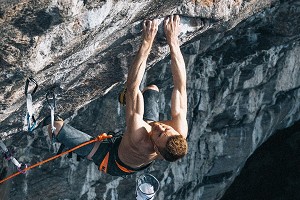
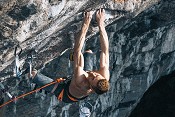
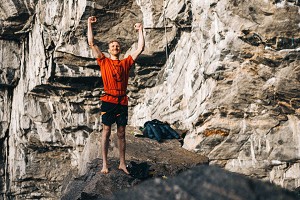
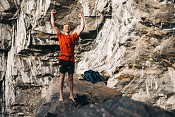
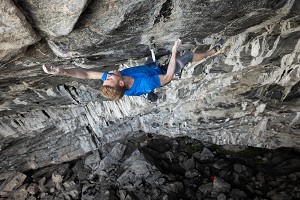
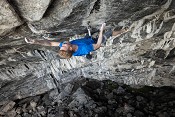

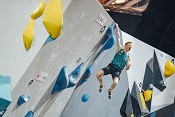
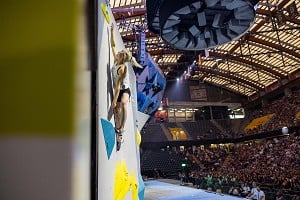
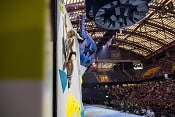
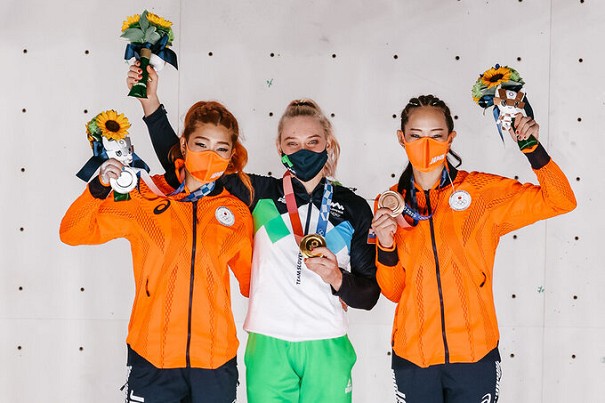
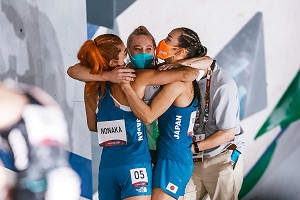

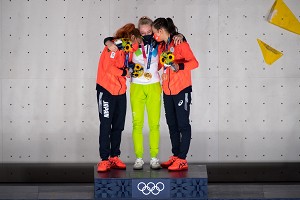
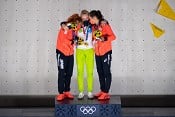
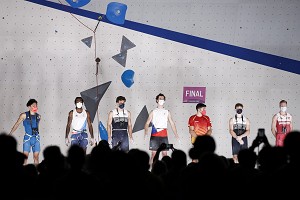
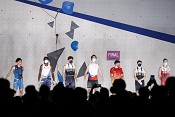
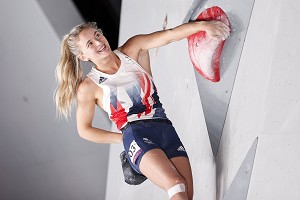
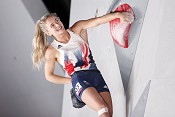
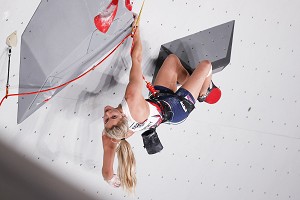
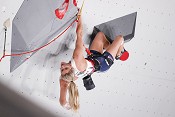
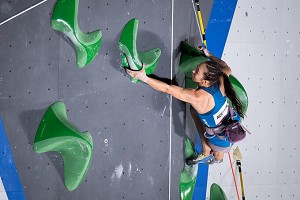
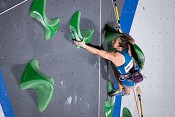
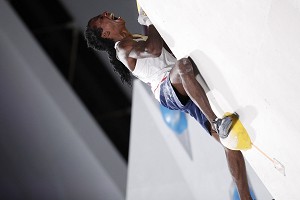
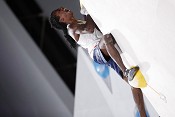
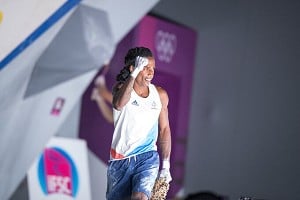
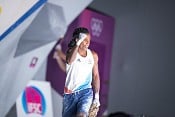
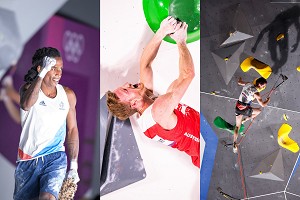
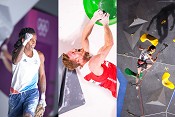
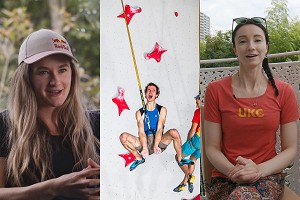
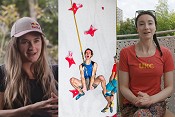
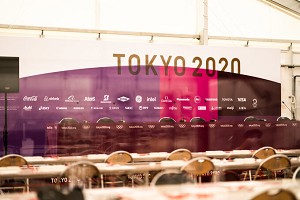
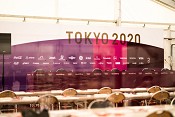
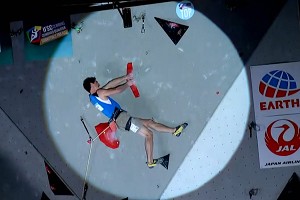
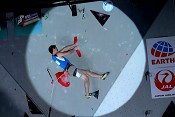
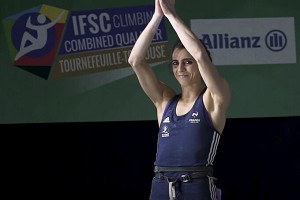

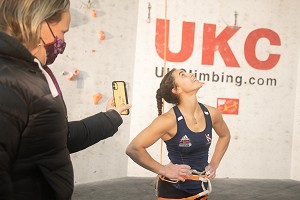
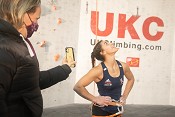

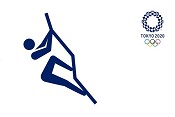
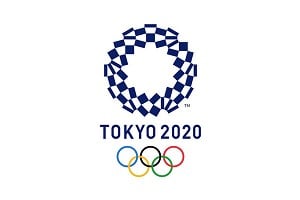
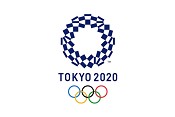
Comments
The scoring system lead to an incredibly exciting final.
But how can it be fit for purpose when it A) gives Ondra a bye to a top four place in his worst discipline and then B) demotes him, not just by one place, but from GOLD medal to NO medal on the basis of a different climber getting a single move higher! I'd like to see how this would have come out if they'd combined scores through addition rather than through multiplication (I might work it out later).
On a separate subject, I felt very sorry for Ondra on the boulders. The second in particular tested the type of muscle recruitment essential for speed, almost irrelevant to "real" climbing, and which Ondra lacks. It was almost like having a second speed round.
The final boulder was just too powerful and complex to be done in the time, but I had the feeling that with a few more minutes Adam would have been the one to crack it.
I was musing how if the Zone hold on problem 3 had been 2 more along, Adam would have come first in bouldering and maybe got gold... there but for the grace etc etc
Don't think he would. Coleman had 2 tops by then and Ondra was the only one to miss the zone of P2. His only chance of winning was beating Shxcubert in the lead.
Agree though that the zone was in the wrong place on that problem.
Alan
Twas certainly exciting, but in the end felt rather arbitrary.
Boulder set was disappointing. Not enough tops, too little separation, with one too east and one way too hard. I expected more from the setting team.
Announcing was truly atrocious and clueless.
I look forward to 2024 when we have independent events.
I worked it out by addition. The gold medal would have gone to Narasaki with 11 points, and then 5 different climbers tied with 12 points... I didn't go into tiebreakers... I don't think it works out to a better outcome...